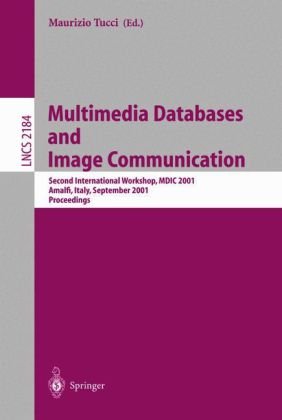

Most ebook files are in PDF format, so you can easily read them using various software such as Foxit Reader or directly on the Google Chrome browser.
Some ebook files are released by publishers in other formats such as .awz, .mobi, .epub, .fb2, etc. You may need to install specific software to read these formats on mobile/PC, such as Calibre.
Please read the tutorial at this link: https://ebookbell.com/faq
We offer FREE conversion to the popular formats you request; however, this may take some time. Therefore, right after payment, please email us, and we will try to provide the service as quickly as possible.
For some exceptional file formats or broken links (if any), please refrain from opening any disputes. Instead, email us first, and we will try to assist within a maximum of 6 hours.
EbookBell Team

4.7
106 reviewsMultimedia technologies are rapidly attracting more and more interest every day. The Internet as seen from the end user is one of the reasons for this phenomenon, but not the only one. Video on Demand is one of the buzzwords today, but its real availability to the general public is yet to come. Content providers – such as publishers, broadcasting companies, and audio/video production ?rms – must be able to archive and index their productions for later retrieval. This is a formidable task, even more so when the material to be sorted encompasses many di?erent types of several media and covers a time span of several years. In order for such a vast amount of data to be easily available, existing database design models and indexing methodologies have to be improved and re?ned. In addition, new techniques especially tailored to the various types of multimedia must be devised and evaluated. For archiving and trasmission, data compression is another issue that needs to be addressed. In many cases, it has been found that compression and indexing can be successfully integrated, since compressing the data by ?ltering out irrelevancy implies some degree of und- standing of the content structure.